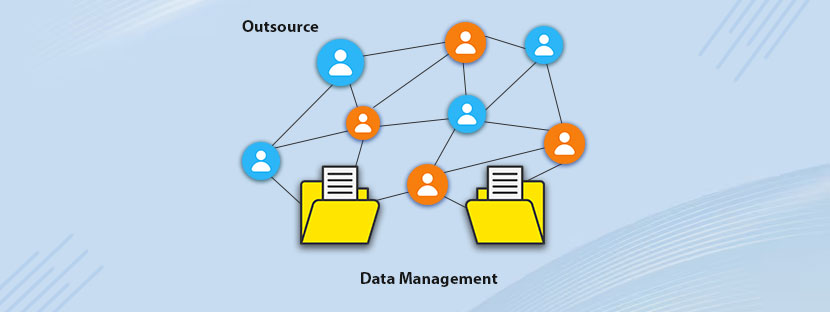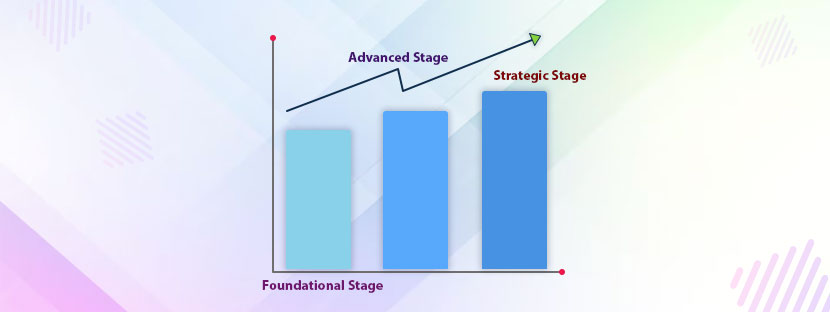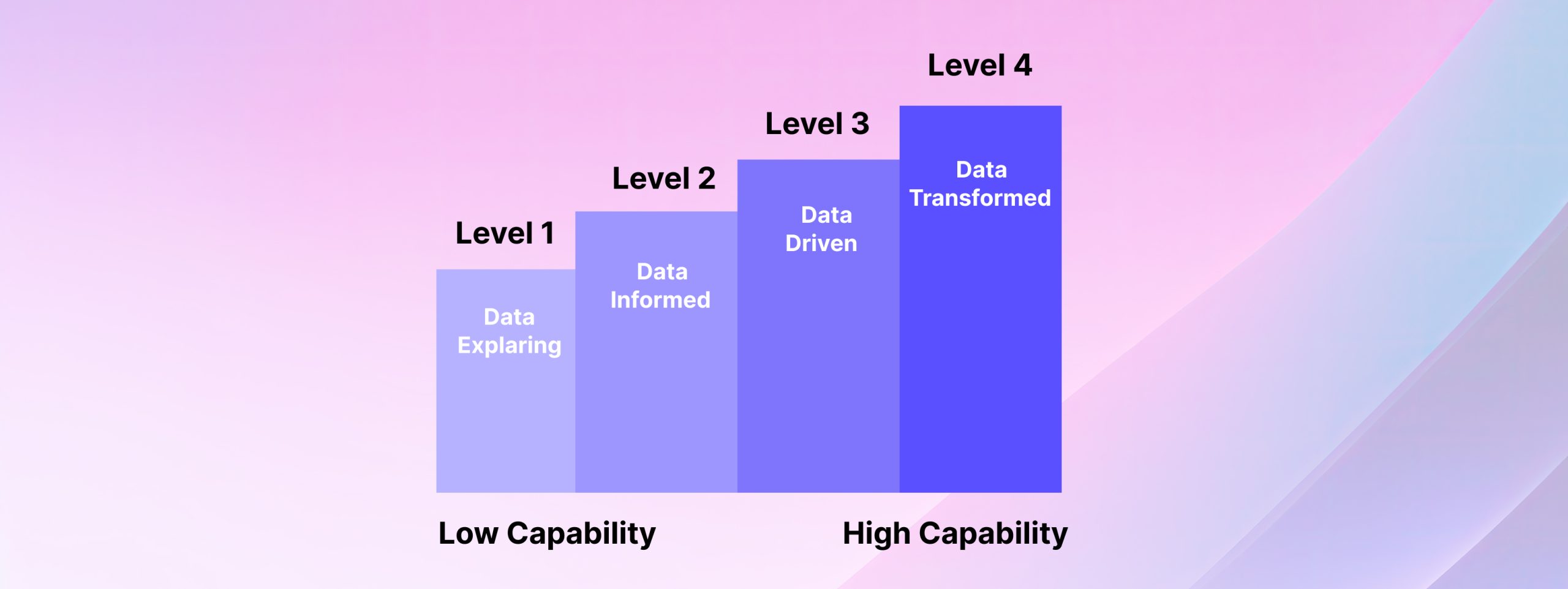In This Article
Do you need help managing your crucial databases? Well, in today’s time, managing data has become quite a hard challenge and expensive too. As a solution, outsourcing has emerged and solved all issues. Businesses just need to know how to outsource data management experts and that’s it!
At present, for managing data, organizations mainly have two options; whether to keep an in-house team or outsourcing. However, keeping a team for data management is quite expensive and it has its respective challenges. Added to this, investing in data management software is not a reliable way at all. Hence, outsourcing becomes the only solution that can save you from all these challenges.
Data management task is not just a process to capture and gather data in a database; rather, it’s a complex process. Do you how much percentage of data remains relevant even after managing them properly? It’s just about 23% of Good Data that remain relevant if data management activities have worked properly. Hence, applying the best measure to manage data is necessary.
In this blog, we’ll discuss how to outsource data management experts for your help. Along with this, a few benefits and useful tips for managing huge chunks of data will be covered in this piece.
A. Why do Businesses Need Data?
Just answer a simple question, without data, how can you understand who are your customers? No right? Therefore, data helps businesses to know their customer base and what things their customers like. Besides that, can you calculate how your businesses would earn profits without data? Simply No! Hence, you need data to calculate your business performance and track it.
Constantly monitoring business activities is very crucial otherwise businesses may lose potential opportunities. Data helps here to monitor each business activity with proper measures and ensure success. Businesses can understand what marketing element is doing good and what element is worse through business data motoring. Data also helps businesses frame strategies to overcome any kind of business struggle. Businesses nowadays prefer to outsource data management experts to manage data with efficiency.
B. Where Data Used?
In everything, to answer it simply. Data is the new oil and without it, a business cannot sustain itself for a long time in this competition. Ask where data is not needed in the business operation. From creating new revenue streams to identifying new customer segments, businesses need data at every time.
Data plays the most crucial role in managing products and services and compiling them as per the market competition. Businesses just need to know how to outsource data management to get them done. Besides that, data helps businesses to track products and make changes to existing products.
Businesses can also track how much their products will perform in the next few years with the help of data. Hence, businesses can take better actions if they have a better quality of insightful data. For these reasons, businesses invest in data management task manager tools to make sure they have a proper database.
C. Where does Data get Stored?
At present, businesses have many options to store their data but when we categorize them we’ll find three main types. These are;
I. Data Warehouse
A data warehouse is the basic mechanism on which businesses rely to store their crucial information. The data warehouse mechanism provides a long-term solution for managing databases. Businesses can store data in data warehouses to provide it more safety and security. Data warehousing facilities are now available in physical and virtual formats. With the help of hard drives, warehouses store data physically, and virtually, they rely on the cloud system.
II. Mar-Tech Systems
The term Mar-Tech signifies the collaboration between “Marketing” and “technology”. Combining both terms, businesses have come out with a Mar-Tech system to manage databases. Businesses must know how to outsource data management experts to use mar-tech systems properly. Hence, this technology is more like cloud technology where data gets stored in the cloud database. Businesses can easily retrieve data from anywhere at any time.
III. CRM System
A Customer Relationship Management (CRM) system plays a pivotal role in efficiently managing and organizing data related to an organization’s customer interactions. At its core, a CRM system is designed to streamline and centralize customer information. It enhances the overall customer experience and facilitates informed decision-making. In today’s time, businesses imply data management outsourcing to incorporate CRM systems.
The CRM system collects and stores a wealth of data, including customer contact details, communication history, purchase behavior, and preferences. If you know how to outsource data management experts then this task will become easier. Therefore, This comprehensive database serves as a centralized hub where all customer-related information is accessible in real-time. This database consolidation enables a 360-degree view of each customer, which empowers businesses to understand individual needs and preferences.
One key feature of CRM systems is data entry automation. Through various channels like website forms, email integrations, and social media, the CRM system automatically captures and updates customer information. This automation not only reduces manual data entry errors but also ensures that the database remains up-to-date. Moreover, It also reflects the latest customer interactions. However, when you know how to outsource data management then you won’t prefer automation as outsourcing is better than automation.
D. Benefits of Outsourcing Data Management
Managing data can solve many issues from the organization’s perspective. But the fact is whether you should manage data internally or you choose to outsource. Managing data internally has its unique benefits but when you prefer to outsource, you can explore the following benefits.
I. Saves Costs
Managing data from an in-house team is far more expensive than outsourcing the same task. Also, You need infrastructure, manpower, and other facilities to run an in-house facility. However, outsourcing does not require any of these things at all. Therefore, You can save up to 40% of the costs when you prefer to outsource the same task.
II. Efficiency Enhancement
Do you know that the data management task is not simple as it needs the continuous attention of the data manager? So what do you think you can keep focusing on data managerial work while neglecting your business’s core task? It’s a no! Therefore, outsourcing comes into play where you can efficiently manage your core business tasks while delegating data managerial tasks. You just need to know how to outsource data management experts for your needs.
III. Improving Quality
Managing the quality of the data is very essential and it depends on how you manage your data. Hence, Incorporating data management activities only can help you to manage the quality of the data. With the best measure of data quality standards, you can have quality data in your database.
E. Helpful Tips for Data Management Outsourcing
Outsourcing data management can be a smart move for many businesses, but it’s crucial to navigate this process wisely. To ensure a smooth and effective partnership, consider these straightforward tips. Before outsourcing, identify the specific data management tasks you want to delegate. This could include data entry, analysis, or storage. Therefore, communicating your requirements ensures the outsourcing provider understands your expectations.
I. A Thorough Research
Thoroughly research potential outsourcing partners. Look for reputable companies with a proven track record in data management. Also, reading client reviews and checking industry certifications can help you make an informed decision.
II. Always Look for More Security
To know how to outsource data management you need to prioritize data security. Given the sensitivity of the information, prioritize a provider with robust security measures. Added to this, ensure they comply with data protection regulations and implement encryption and access controls to safeguard your data. Hence, Outsourcing data management services will help you ensure more security to your database.
III. Clear Communication & Scalability
To get your service done properly, you have to establish transparent communication channels. Clear communication is key to a successful outsourcing relationship. Define reporting structures, establish regular updates, and ensure an open line for promptly addressing concerns. Furthermore, consider scalability as one of the main factors. Choose an outsourcing partner capable of scaling their services based on your evolving needs.
A flexible provider can adapt to changes in data volume and complexity, ensuring a sustainable partnership. Additionally, define service level agreements (SLAs). Clearly outline expectations regarding deliverables, deadlines, and quality. SLAs provide a framework for accountability, making it easier to measure performance and address any issues that may arise.
IV. Training & Audit
To get the best service, you have to Invest in training and onboarding. Ensure that your outsourcing partner understands your business processes and specific requirements and you know how to outsource data management. Offering training sessions and comprehensive onboarding can bridge any knowledge gaps and enhance collaboration.
Furthermore, to ensure the best practices of outsourcing, you need to conduct regular audits. Therefore, Regularly assess the performance of your outsourcing partner to ensure they meet agreed-upon standards. Also, Audits help identify areas for improvement and maintain the quality of data management services.
In addition, auditing also fosters a culture of compliance. Data management outsourcing should align with legal and regulatory frameworks. Therefore, Regularly review and update compliance requirements to avoid any legal complications. Also, auditing prioritizes cost-effectiveness. While outsourcing can streamline operations, it’s essential to balance cost with quality. Choose a provider that offers competitive pricing without compromising on the quality of services.
Check Out -> 5 Popular Types of Data Entry Services
V. Have a Contingency Plan
Maintain a contingency plan. Unforeseen circumstances can disrupt operations, so having a contingency plan in place is crucial. Ensure your outsourcing partner has measures in position to address unexpected challenges and maintain continuity.
Successful outsourcing data management activities involve careful planning and consideration. Clearly define your needs and how to outsource data management experts for your organization. Remember that, you always research potential partners and prioritize data security. Also, You need to establish transparent communication and ensure the scalability of the work. Besides that, you need to define service level agreements, properly invest in training as well as conduct regular audits.
Outsourcing data management services will save you time so you can focus more on the core tasks of your business. Hence, Outsourcing has become very common at this moment and it brings efficiency to the operation. Lastly, Businesses just need to know how to outsource data management experts and that’s all!











